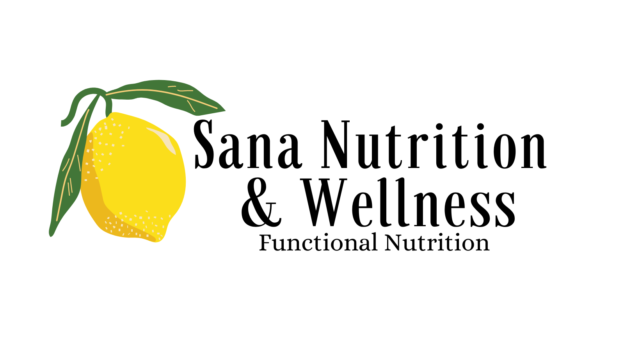Episode Transcript:
Hey, Hey, and welcome to the very first episode of the pursuit of wholeness podcast.
I am super excited. You’re here. I’m super excited. I’m here. Um, this podcast has been a really long time in the making, so I am glad you can join me on this new adventure. I love to share and educate my clients, friends, family, really anyone who will listen. I love to share what I learn in all areas of nutrition and wellness.
And I have sometimes felt a little stifled by being able to really expand upon my ideas through writing and through my blog. So that is why I decided to, uh, Create this podcast. I can be a little rambly and I can be a little tangenty. Is that a word? Um, so I will try to keep that at a minimum. So where do we begin?
I think I will just begin at the beginning and I believe the beginning of health and wellness. Really is nutrition. We literally are what we eat. Everything about us is made up and supported by the nutrients that we put into our bodies. Did you know that about 330 billion cells are replaced daily?
That’s the equivalent of 1% of ourselves in about 80 to 100 days, 3 trillion will be replaced and replenished. So what we eat in that 100 days is really the building block for our bodies. It’s not just our structural cells, like our bones and tendons and muscles. It also makes up our hormones. These are chemical messengers of our bodies.
They also make up our neurotransmitters, our immune cells. Our body is so incredible. And all we have to do is just live, live our life. It’s really miraculous. If you think about it, our bodies are just humming right along doing its thing, repairing, rebuilding. Everything that is needed. And all we have to do is give it the resources that it needs, the nutrients from our food that are the building blocks for all the systems, all the cells in our body.
So what do I mean by nutrients? Um, really nutrients fall into two different categories. One of them are the macro nutrients and the other. The micronutrients, the macronutrients are the big guys. They are the guys that get all the press, the. Protein carbohydrates and calories, calories really aren’t macronutrients, but I’m going to lump them into these categories.
These are the big guys that people really talk about. These are typically the, how much question, how much protein, how much fat, how much carbohydrates, how many calories should I eat? And. These are really important in the conversation, especially when we talk about interventional strategies, what do I mean by strategies?
So I really want to make this distinction right in the beginning. So when I think about nutrition and how to approach specifically, um, health. They could be weight loss. They could be, uh, diabetes management. How your diet affects your hormones. I always think about fundamental nutrition. Interventional nutrition.
So we really need to think about fundamental nutrition first and then build the interventional strategies on top of that. And though that is really where a lot of the macronutrients are really helpful, really parsing down. How much protein to have, or how much carbohydrate to have. And then that will really help us meet our health goals.
Macro nutrients are really essential. I think they actually get a little too much airtime. Because without the micronutrients, the macronutrients can’t really do their good work. You know, that old saying it’s a little outdated. So bear with me here behind every successful man. There’s a strong woman. This is what micronutrients are.
Micronutrients are the people behind the scenes getting less press, but doing the work day to day. Paying the bills, making dinner, organizing the calendar, taking the kids to, and from the doctor, you get it. So while everybody is focusing on the macronutrients, the micronutrients are really not getting as much press and.
I really want to change this. I really focus on micronutrients when I work with my clients. And I want you to also think about micronutrients. So what are micronutrients? Micronutrients are the vitamins minerals and phytochemicals. That our body needs to, to really do all the things, make the new cells, make the neuro-transmitters make the hormones.
These micronutrients really help our cells work correctly. So let me take a second. To break down the micronutrients in more detail. Let’s first talk about vitamins. There are about 13 of the most essential vitamins. So vitamin a vitamin C vitamin D vitamin E vitamin K, and the B vitamins, uh, thiamine riboflavin, niacin by a tin B6, B12 and folate.
Each of these is used in different ways throughout the body to build and repair new cells, create our chemical messengers, which are the hormones and maintain our nervous system, maintain our emotional balance. Um, those are vitamins. Minerals are, uh, Things like calcium phosphorus, potassium, sodium chloride, magnesium, iron zinc.
I dine sulfur copper, fluoride, manganese, selenium, and these work in various ways to. Things like calcium and phosphorus work to create the framework in our bodies that, um, go into main building and maintaining bones and connective tissues. Um, other minerals like magnesium and zinc work as cofactors for many enzymatic reactions in the.
So what’s a, co-factor a co-factor is basically, it’s one of the keys in a process. So similar to a recipe, for example, say you’re making. And you don’t have quite enough milk. The bread will still make, but it won’t make quite right. And so that is kind of what co-factors are. They are used in various processes to make certain things, like, for example, we use magnesium to turn a amino acid trip to fan into serotonin, and then saratonin in to melatonin.
If we don’t have. Enough magnesium, that process can never happen. Or maybe we can just turn the trip to fan into serotonin, but there’s not quite enough to make the amount of melatonin that we need. And then we can’t sleep very well. So minerals are really important. The next micronutrient are phytochemicals.
So phytochemicals are plant chemicals. These are basically chemicals that plants make that. We use, we benefit from that help us in so many different ways. Um, they are so beneficial because we really co evolved to utilize these various chemicals that, uh, plants make. There are literally over 1000 of them.
Some of the main ones that you might recognize are things like polyphenols flavanoids, ISO flavanoids, anthocyanins, phyto, estrogens, carotenoids, and fiber, to be perfectly transparent. I didn’t realize that fiber was now lumped into the phytochemicals. When I was in school, there was lots of talk about fiber, but phytochemicals, weren’t really a thing.
Um, I’ve been a dietician for over, um, 17 years. So you can see how much has changed. They were talking about phytochemicals, but it was less. In the conversation anyway. So fiber is also a type of phytochemicals and that makes total sense. So all of these micronutrients are super important in the functioning of our bodies.
And so many of us aren’t getting enough of these really essential. Uh, micronutrients or our GI tracks are so wonky medical term that we can’t absorb what we eat. So just quick side note, I can’t wait to get to the digestive health. Uh, podcasts that I have planned because it is so fascinating how integral our GI track is to how we feel, how we function.
Um, our hormones, our brain health. It is fascinating. And sadly, so many of us are walking around with digestive tracks that are not working quite right or are really giving us issues. Our gut health really is the root of all our health. And when we start there and we fix some of those issues, so.
Downstream problems really start to resolve, but I’m totally tangenting. So let me get back micronutrients. Basically what I’m trying to say about micronutrients is that we don’t, they don’t really get enough love inattention because macronutrients, the protein, carbohydrates and fat are taking up all the.
And it’s not that macronutrients are bad and that we shouldn’t talk about them because they are very important. It’s just that to really build a robust, healthy diet, we have to consider both. So a good example is. Say one of the most frequent things people come to me for is weight loss. It’s important for us to count carbohydrates, understand what are carbohydrates, increased protein, maybe increased fat, but all of that stuff is well and good.
If you aren’t getting the micronutrients that your metabolism needs to work correctly. All of the changes to the carbohydrates or the protein, your metabolism will still have a hard time. Really working, but the good news is, is that paying attention to both is actually pretty simple. And I will show you how so by creating a diet that is really nutrient dense as your foundation, and then building interventional strategies on top of that, that is how you create sustainable long-term change.
That is really transforming. Okay. Now for the fun part, the, how so I told you about micronutrients, macronutrients. Blah-blah-blah I always find that stuff really interesting. Um, but I can sometimes get into the rabbit hole of. Of the science, but please always remember that I will get to the house because that is really what is transformative.
I can tell you all day about the nutritional science, but what I really like to focus on and what I really want you to walk away from our time together with are some doable strategies. So always know that I. M a real food, real life person. I like to make recommendations and strategies based on the nutritional science, but I want to make it doable for you.
So what is the. Magical fairy land of a diet that is not just robust in the micronutrients, but perfectly balanced with the carbohydrates and protein. Um, sadly that is probably not going to be the reality all the time, but if you do focus on these basic things, Most of the time you will get there. So my favorite magic diet is really the Mediterranean diet.
Why the Mediterranean diet? Well, this diet is the most well-researched and it really has the best long-term health outcomes. Study support that it helps people with sustainable weight loss. It helps people with insulin resistance, which is one of the causes. Well, the cause of type two diabetes. Um, it is used to treat heart disease and has really good.
The outcomes long-term hormone imbalances, fertility issues, autism, mental health, all of them. Health conditions have had some really good outcomes utilizing the Mediterranean diet. And so that is why the Mediterranean diet really is the. Foundational diet that I recommend for everyone. It’s also super easy to find recipes for find meal plans for.
And so that’s why I really like to recommend that so people can get really confident in cooking those meals, going grocery shopping, and then they can build on the higher level. Strategies after that. Another really important thing that I love about the research surrounding the Mediterranean diet is that it supports healthy aging and longevity.
So what does that mean? Whenever I am thinking about someone’s health plan, my own health and whoever I am working with. I always like to build the strategies to meet their goals, but also to help them live well to age well, because you can. Super focused on weight loss say, but if those strategies are going to make you more unhealthy and more prone to health problems at 50, 70, 90, is it really worth fitting in to those size six jeans?
Some people may say yes, but. I say no. Um, everything that I think about for myself is really through the lens of how I will age and how I will be at 80, 9100. So whenever I am building recommendations for people that is always something that I like to stress with my clients. And then also, I like to really focus on and the Mediterranean diet really supports this.
One of my favorite examples of this. Is the blue zones. So a few years ago I stumbled upon the blue zone concept. It was created by a guy named Dan Buettner. If I’m remembering correctly, Dan started out as a reporter and a health researcher. And he started noticing these pockets around the world, where there was a really high number of healthy and happy centenarians.
And so he started really picking apart the through lines. What were the things that were the commonalities in those groups of people that he could really parse? And point to some possible common denominators. And one of these common denominators was the Mediterranean diet. These cultures by and large followed the Mediterranean diet with of course, some cultural or regional variations.
At its core, it was the Mediterranean diet. So what is the Mediterranean diet? The Mediterranean diet is essentially a plant-based diet. Okay. So let me be clear when I say plant-based, I don’t mean plant-based in the exclusion of animal products. When I say plant-based, I mean, focusing on plant foods, because plant foods are really where we find the majority of the micronutrients, the phytochemicals and the fiber that is needed for the building and the creating that I talked about earlier.
I just realized that I didn’t really talk too much about fiber. What fiber is. So fiber is the structural part of plants. It’s like the bones and the muscles of the plants. It’s kind of a weird analogy, but, but you get it. And we utilize that fiber and our microbiome uses that fiber as its primary food.
So fiber does quite a bit of. It helps to give our waste some bowl, as it moves through the colon, it helps to detoxify our bodies and it provides, like I said, food for the microbiome. So what the microbiome is, is basically a bunch of different, uh, bacteria, viruses and fungi. Yes. I did say fungus. We do have.
Helpful fungus living in our gut on our skin and these little bugs really work in a symbiotic way for us. They do so much. And fiber is really the critical food that helps to feed the bacteria, particularly the helpful bacteria. And so when we don’t get enough, The less helpful bacteria that thrives on simple sugars grows too much.
The helpful bacteria starts to die off. Everything becomes imbalanced. And when that microbiome becomes imbalanced, there are disruptions to the natural signaling that happens between. Those the microbiome and our immune cells are nervous cells. And so that is why fiber is so important. And sadly in our Western culture, we just really don’t get as much fiber as we.
So back to the fundamentals of the Mediterranean diet, along with emphasizing fruits and vegetables, the Mediterranean diet also really focuses on other plant foods like nuts seeds, whole grains, herbs beans, the Mediterranean diet also focuses on fish and seafood consumption, especially fatty fish, like salmon, mackerel, sardines.
Anchovies. These are where we find a whole lot of omega-3 fatty acids. It also focuses on really getting some good, healthy fats, like olive oil, all of these foods, fruits, vegetables, nuts, seeds, beans. These should be. Fatty fish, olive oil. These should be the majority of our diet. You can also have poultry chicken, Turkey, and dairy in moderation.
So what should you not have? What are the foods that you should limit? Red meat? Like. Beef sugary drinks, added sugar cookies, candies cakes, processed grains, particularly the highly processed crackers, pasta refined oils, like canola oil, margarine, uh, cotton oil, which is not, we don’t eat cotton. Why are they making oil out of cotton?
And then the overly processed foods. This is something that is a big question that I typically get. Why limit red meat and pork? Well, as you know, there is a pretty big debate over the effects of saturated fat. And to be honest, the research is pretty mixed. Some say it’s bad. Some say it’s good. The truth lies in the middle.
And it also lies in how we as individuals metabolize those fats. For some people it’s totally fine for some people having too much saturated fat, having high amounts of saturated fat is. Atherogenic and that just basically means that their body produces more of the blood lipids. That will cause the clogging of the arteries.
So when I think about making recommendations, I always like to err, on the side of caution though, you can really get the same amount. Of protein and a lot of the same nutrients from lower saturated fat sources. And so that is really what I focus on. So that’s basically it eat lots of plants. Healthy fats, lean protein, except for fatty fish limit, high sugar foods limit highly processed foods and refined orals.
It’s pretty simple, but just because it’s simple stuff, it doesn’t mean it’s easy because we are surrounded by so much in Tyson. So, so many things that have been created to really, um, make us want to eat it. So where should you begin? Well, that really depends on where you are now. My advice is always to start where you are now and gradually add more of the good stuff as you decrease the bad stuff.
And that may sound kind of simplistic, but. The whole point of this is to be consistent, to start to make changes that you can stick to and build upon. And so that’s why I really want you to start where you are gradually adding the good stuff and taking away the bad stuff every day. Small consistent changes and you will get there.
So just as a recap and just to make it super easy for you to start making those small consistent changes. Let me just break it down into some small points. So here it goes. First, eat nine portions of fruit. And vegetables every day. So what this means is five to six vegetables, lots of leafy greens, carrots, uh, broccoli, cauliflower, cucumbers, and then three to four fruits.
So berries, apples, pears, lemons, get creative. Add it into your smoothies. Add it to your eggs. Have extra little vegetables to snack on next. Add olive oil liberally. Add it to your salad. There are some really fascinating studies that show having more olive oil is really beneficial. Add beans, nuts, seeds, daily, eat whole grains like Quinoa, Farrow brown rice have fish maybe three times per week, and then limit processed foods, added sugars, sugary drinks, refined foods, and then last but not least move date.
And that last part is exactly what we will be talking about next time. So next episode is all about exercise, why you should, what kind and how often it will be really fun. Thank you so much for joining me today. As I start this new adventure, it was really fun, little nerve wracking, but really fun. If you liked it, take a second to rate and review and join me next time for the pursuit of wholeness podcast.
See you. Bye .




